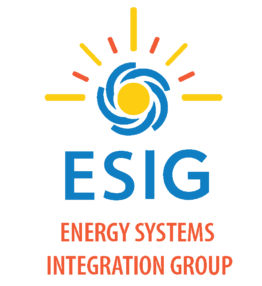
- This event has passed.
G-PST/ESIG Webinar Series: A Comprehensive Study of Impact of IBR Controls on Transmission Line Protection Elements
March 26, 2025 @ 4:00 pm - 5:00 pm EDT

Featured Speakers: Brian K. Johnson, Schweitzer Engineering Laboratories Endowed Chair in Power Engineering and University Distinguished Professor in the Department of Electrical and Computer Engineering, University of Idaho; Jing Wang, Senior Engineer, National Renewable Energy Laboratory (NREL)
About the Webinar: Inverter-based resources (IBRs) exhibit fault responses that differ significantly from those of synchronous generators, which can challenge the reliable operation of many commonly used power system protection elements. The fault response of IBRs is primarily influenced by their control algorithms and configurations, but the impact of these controls on protection relays is not yet fully understood. This presentation provides a comprehensive study of how IBR modeling and controls affect transmission line protection. Key modeling and control aspects include the DC source, inverter model, power level control, current control, and current limiting. The study reveals that certain aspects—such as the type of DC source (battery, PV, or hybrid), inverter model (average vs. switching), and power level control methods (PQ dispatch vs. Vdc-Vac control for grid-following IBRs, and droop vs. VSM for grid-forming IBRs)—do not significantly affect relay response. However, faster control loops, such as current control and current limiting, do influence the relay behavior. Additionally, the study explores the effects of other factors, including momentary cessation, operating points, fast/slow current responses, and grid strength on relay performance. Finally, the study offers recommendations for both IBR and protection engineers to improve IBR fault response and enhance the reliability of protection systems.
About the Speakers: Brian K. Johnson is the Schweitzer Engineering Laboratories Endowed Chair in Power Engineering and University Distinguished Professor in the Department of Electrical and Computer Engineering at the University of Idaho. He received a PhD degree in electrical engineering from the University of Wisconsin-Madison. His teaching and research interests include power system protection, integration of inverter-based generation, HVDC transmission, FACTS devices, power systems transients, and power system resilient control. He is an associate editor for IEEE Power & Energy Magazine and a member of the IEEE Press Editorial Board. He is a registered professional engineer in the State of Idaho.
Jing Wang is a Senior Engineer at the National Renewable Energy Laboratory, where she has worked for the past five years. She received her Ph.D. degree in electrical engineering from RWTH, Aachen University in 2015. From 2015 to 2017, she worked as a lead power system engineer at GE Grid Solutions in Stafford, UK, and she led multiple microgrid grid automation projects and HVDC system validation projects. Her research focuses on power electronics control of distributed energy resources (DERs), microgrid modeling, protection design, and DER control and integration. She has expertise in power and controller hardware-in-the-loop (HIL) evaluation of microgrid controllers, advanced distribution management system (ADMS), distributed energy resource management system (DERMS) for grid automation and control, and DER integration studies. Especially, she leads the 1 MW multi-vendor demo for the SETO-funded UNIFI consortium.
Moderator: Julia Matevosyan, Associate Director and Chief Engineer, ESIG
Registration Cost: FREE
Q&A Session: We will be using the slido platform for Q&A. Please submit your questions and follow-along during the event at this link.

